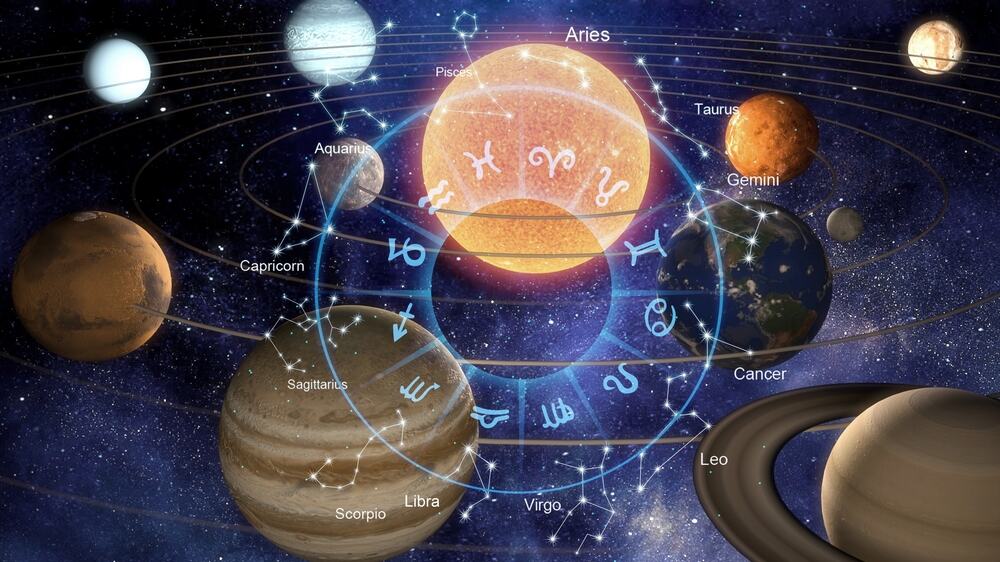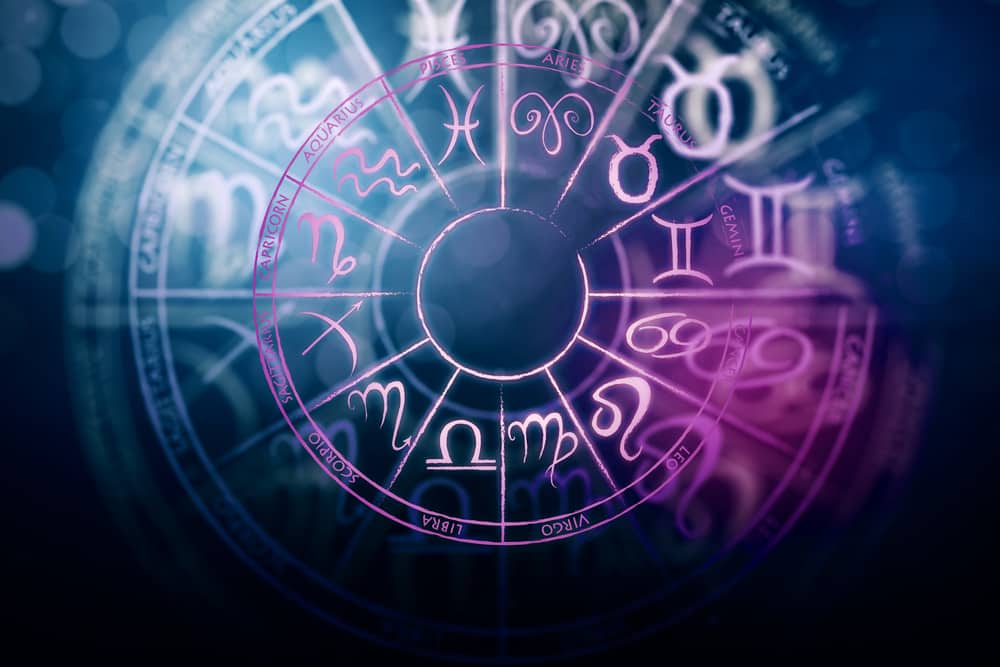
Is your curiosity in astrology piqued, or are you an experienced practitioner looking to expand your horizons? No matter where you are on this magnificent journey, I believe that when enjoying the beauty of astrology, we connect with our spirit and the collective consciousness by the stars.
You don’t need a license or certification to become an astrologer. By studying your own and others’ charts, studying books and online resources, finding a mentor, joining communities, and taking classes in reputable organizations, you can become a practitioner at any level of your choosing.
I want to share with you some things that I believe are essential in making that journey as fun and rewarding as possible.
What Is Astrology?

Astrology is a science that studies the role of planetary influence in our lives. It is possible to think of astrologers as scientists who study celestial events and try to understand their consequences for the people on earth.
Astrology is experiencing a resurgence among Millennials and Gen Z. There’s no doubt that becoming an astrologer can be exciting and rewarding, but it does take time to become proficient. Therefore, you must be willing to put in the required hours of study.
10 Steps To Becoming an Astrologer

First of all, there is no straight path to becoming an astrologer. Neither is there a governing body that regulates practitioners.
Personally, I started learning astrology as a teenager. I began by studying my own natal chart and jumping from site to site, trying to see how they differ in interpreting my different aspects. I feel as if there is always something new to learn from every reading.
You don’t need any qualifications to become a genuine astrologer. In fact, most astrologers are self-taught. Just years and years of experience to back them up.
1. Learn the Basics
First, you need to learn the basics of astrology. Make yourself familiar with astrological terminologies. If you are interested in Roman mythology, this would be much easier for you.
The fundamental subjects you must learn in astrology are the signs, planets, houses, angles, and aspects. After which, you can move on to each placement, pattern, shape, minor asteroids, transits, ephemeris, and other charts like synastry and composite.
2. Study Your Own Chart
The most effective way to understand how astrology terms come into play is to see how they work in your own chart. You can get your free birth chart online through Astrodienst. Astro-Seek also offers free chart generation as well as aspect interpretation.
The next step to taking your astrological knowledge to the next level is mastering your personal charts.
Study your own birth chart from front to back. Get a copy of your parents’, siblings’, and close friends’ charts to see how different placements manifest in their lives.
3. Study Other People’s Charts
As mentioned above, it’s a smart idea to check out other people’s birth charts. Astro Charts has a vast network of celebrity charts that you can filter by planets, sun/moon combination, aspect, pattern, and other placements.
Similarly, you can generate your synastry charts with your significant other, ex-lovers, friends, and relatives to understand how your charts interact. It’s not only a great tool to build your expertise, but it might also help you understand others and your relationships better.
4. Read Books
Don’t just rely on the information you find online because it can sometimes be inaccurate. Instead, read books on astrology. You can be confident that the material is well-backed and organized.
Many books have been written to assist you in learning astrology. I recommend you start by buying The Only Astrology Book You’ll Ever Need by Joanna Martine Woolfolk. She has provided detailed insights into every placement a beginner should know.
Other incredible books on astrology for beginners are The Twelve Houses by Howard Sasportas, Astrology: Using the Wisdom of the Stars in Your Everyday Life, and The Stars Within You by Juliana McCarthy.
5. Access Online Resources
The most common way to get started with learning astrology is by using the free resources you can get your hands on.
Reddit has many online communities that discuss astrology. r/beginnerastrology is a great niche group for those starting out learning the craft. There are also plenty of professional astrologers that provide sample readings about celebrities on the website.
Lindaland, founded by American astrologer Linda Goodman, is a website that features many forums wherein users discuss astrology. If you are looking for personal insights about a specific natal, synastry, or composite aspect, Lindaland may be a good place to look.
Astrodienst offers a complimentary Personal Daily Horoscope that tracks your daily transits.
6. Find a Mentor
Find a professional astrologer you admire and study their content. Read their books, blogs, and readings, follow their social media accounts, and try to understand the patterns by which they go about their astrological interpretations.
You don’t have to sign up for classes or apprenticeships with your favorite astrologers.
Instead, you can study the free content they provide online. Many professional astrologers have YouTube channels and blogs where they post their insights about aspects and transits.
The trick is exhausting what you already have. It’s free, exercises your intuition, and provides a sense of familiarity and reality to the aspects and placements you encounter.
Over the years, I’ve personally gotten professional chart readings from my favorite astrologers, too. Not only did they shed light on aspects I’ve overlooked, but I’ve also learned plenty about how they see patterns and placements differently than others.
During my Saturn Return, I actually booked a reading from one of my favorite astrologers, and I felt that it really helped me navigate through that complicated time.
7. Take Classes
Once you’ve exhausted your free resources, you’re in the right position to decide whether you’re ready to take it to the next level. Astrology classes are not cheap, but if you want to learn from actual astrologers and gain feedback on your interpretations, this is the way to go.
Some of the most reputable schools and individuals offering classes in astrology are Kepler College, Avalon School of Astrology, National Council for Geocosmic Research (NCGR), Chris Brennan, and Austin Coppock.
UK institutions include the Faculty of Astrological Studies, Centre for Psychological Astrology London (by Liz Greene), The Astrological Association, The London School of Astrology (LSA), Mercury Internet School of Psychological Astrology (MISPA), and The Sophia Centre for the Study of Cosmology in Culture.
Kelly’s Astrology (Canada) is also one of my favorite astrologers.
As with any discipline, the only way you can become an expert is through practice.
8. Certifications and Exams
As there is no regulatory agency presiding over practitioners, you certainly don’t need a certification or license to practice astrology. But certifications can definitely help establish your credibility.
There are institutions that offer examinations for advanced-level astrologers, such as the International Society for Astrological Research (ISAR). The ISAR has a 6-hour exam that can be taken online or at conferences, which they host worldwide. However, they do require certain modules before taking the exam.
While I recommend the ISAR for your first certification, the National Council for Geocosmic Research (NCGR) also provides a proficiency exam that is apparently designed to equal a 4-year college course in astrology.
9. Offer Your Services
As Warren Buffet said, “Millionaires don’t use astrologers. Billionaires do.”
The Association for Astrological Networking (AFAN) can help you connect with networks of astrologers around the globe. They offer workshops, classes, and a way to connect with your local groups in your state.
Before you render your services, make sure you are prepared. You should know your rates, your services, and coverage, how to schedule your appointments, your payment methods, delivery methods, and types of services.
When you’re confident, you can start work on your own as a professional astrologer. There are many new things to consider, such as state laws and regulations for astrology practitioners, which AFAN can also assist you with.
Some astrologers start a blog or column. Others become freelancers and move on to writing horoscopes for magazines or websites.
Like many practitioners, you can also opt to post your own educational content on social media and promote your services there. After which, you can collect testimonials to put on your website or portfolio.
10. Never Stop Learning
Congratulations! Finally, I could throw you any question under the stars and about the stars, and you would know just what to say. But, as with any discipline, learning never stops.
Astrology is a science that requires years and years of study. Even the most seasoned astrologers would never consider themselves total experts in the field yet. Since the stars are constantly changing and we continue to encounter new people and experience various events every day, mastering astrology is a lifelong process.
On a Final Note
Astrology is a field in which to experience the full potential of human consciousness. It allows us to look at life from different perspectives. It makes us more alive and more awake to ourselves and others, and it can inspire surprise and insight, as well as creativity.
Becoming an astrologer is a journey. The first step in this process is learning the basics: theory, history, and technique. Once you have mastered the fundamentals, you will have many choices for furthering your education: apprenticeships, conventions, classes, workshops, and certifications.
If you choose to monetize your knowledge and skills, there are various ways to do so. Some astrologers choose to provide their services to people by reading charts, while others go on to write blogs. Many become writers on websites, magazines, or freelance, and some even develop applications or teach their own courses.
Being an astrologer is a calling. It means having a deep love for people and their struggles. It means respecting the dignity of even the poorest or most troubled souls and a desire to be of service.









